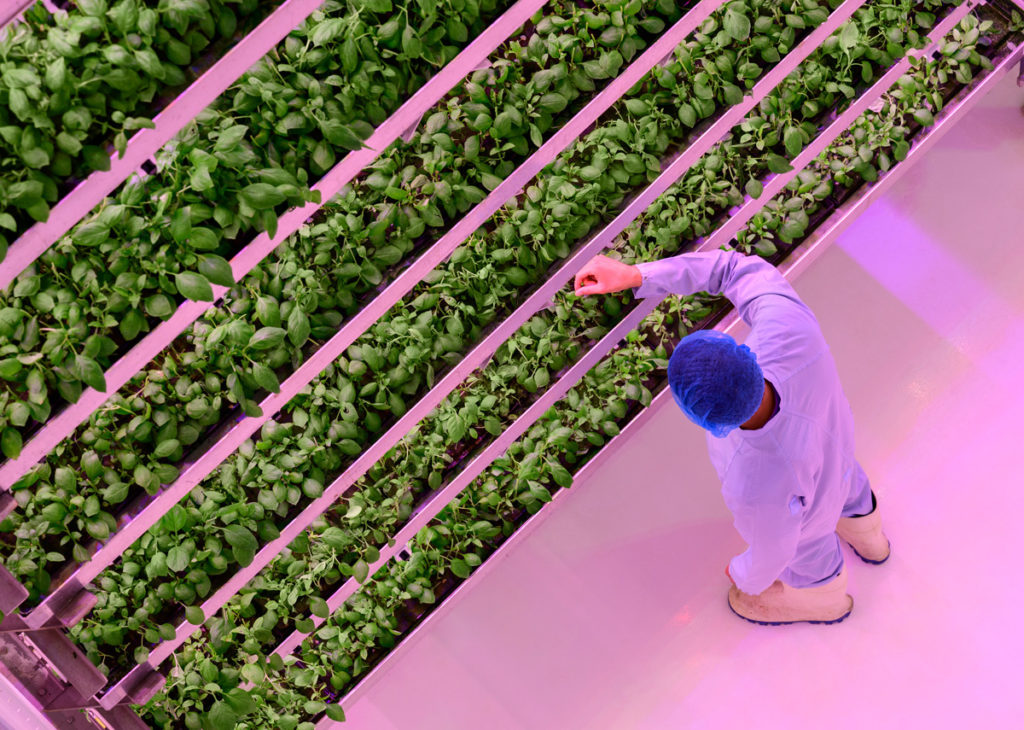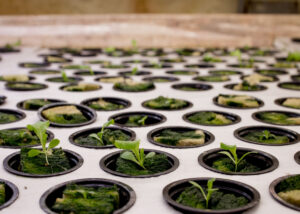The changes in weather we have seen recently have highlighted the fact that crops grown outdoors tend to be affected by weather conditions. Vertical farming has been hailed by many as the future of global food production as it is “the practice of growing plants under fully controlled conditions in buildings in many stacked layers, without solar light.”
But what are the main five benefits of vertical farming that will ensure it becomes the future of modern agriculture?
#1 Not season reliant
Because vertical farming takes place indoors it is reliable all year round and therefore not season reliant. It is not dependent on the weather conditions as it takes place in a managed, protected and well-monitored environment, providing growers with peace of mind that they can achieve consistent crop production all year round.
#2 Higher productivity level
When farming outdoors, growers need to use more horizontal space to grow more produce and they need the land to be arable fertile land. However, with vertical farming, the farm can be built in any location and climate zone. Also, when the farm needs to expand, extra layers can be added in order to grow more in the same space – meaning they achieve higher productivity on a small land area.
It has been said that one acre of a vertical farm can consistently grow the equivalent of ten outdoor acres.
#3 Lower labour costs
Indoor growing systems that are fully automated do not need huge amounts of manual labour in order to achieve successful year-round production. Vertical farms can use low-skilled labour at peak times, such as harvest, but their yearly labour costs should remain on the lower side – even if they scale up their production.
#4 No need for harmful chemicals
Pests are unable to enter the controlled environment in an indoor vertical farm, so there is no risk of crop damage and no need for any harmful chemicals and pesticides to be used. There is also less risk of fungal diseases gaining control as humidity levels are able to be managed.
The result of the lack of use of pesticides and chemicals is healthier and safer crops, which are also clean and ready to eat.
#5 Environmentally friendly
Indoor farming massively reduces the number of fossil fuels needed for farming equipment to be used, as large-scale farming equipment is not needed to sow, fertilise, weed or harvest crops. Vertical farming also helps with biodiversity as it does not cause a land surface disturbance, which is helpful to the natural animal population.
As you can see, vertical farming is a unique approach to crop-growing that Gelponics is pleased to support. To find out more about our innovative greenhouse technology and how it can help improve your food production sustainability by optimising crop resilience, please get in touch.


